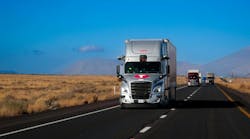“When President Carter declared that the energy crisis was the moral equivalent of war and that this country should become more independent of foreign sources of oil, about 35% of our oil was coming from overseas,” said Starr, CEO of Calif.-based ZAP. “Today over 54% of our oil is imported and it could soon approach 60%.”
Speaking at the Sustainable Energy Forum last week at Sonoma (California) State University, he said relaxed standards for fuel consumption by personal vehicles has contributed to America’s oil dependence problem – and that the problem will only get worse without major policy changes.
“During the past three decades, this country’s energy policy has become a policy dictated by the power elite, the oil and auto lobbies,” Starr said, noting that personal vehicles consume 35% of the U.S.’s oil. “Although the current mileage standard is 27.5 mpg, our national average is now at a 20-year low, with an average of only about 23 miles per gallon, due to the successful lobbying efforts to exempt SUV from these standards.”
Starr added that more fuel-efficient vehicles – specifically hybrids – are commercially available today and could substantially reduce those consumption levels. The Honda hybrid car – running on electric- and gasoline-powered motors – is rated at 70 mpg.
He also criticized federal energy policies that have put alternative-fuel research dollars into the hands “of those that have always fought legislation to move alternative transportation forward.”


